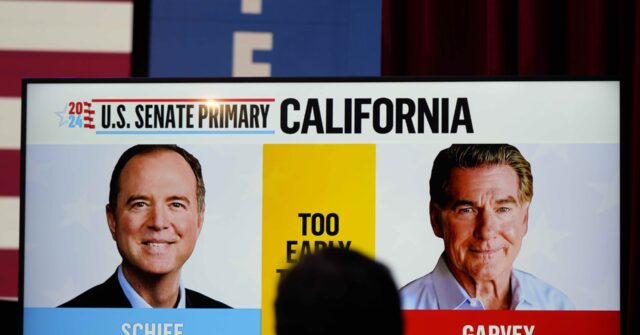The upcoming debate between Rep. Adam Schiff (D-CA) and former Dodgers player Steve Garvey (R) marks a significant event in the race for the U.S. Senate seat recently vacated by the late Sen. Dianne Feinstein. Scheduled for Tuesday evening, this debate will be the only one during the general election. Hosting the event will be KABC-TV in Los Angeles, with a rebroadcast organized in Spanish by KMEX-TV, emphasizing the importance of the Latino community in this electoral process. The debate offers a crucial platform for both candidates to clarify their positions, appeal to voters, and engage in direct dialogue regarding essential topics facing California and the nation.
This debate arrives on the heels of a competitive primary season during which both candidates had already sparred in three debates while also contending with Democratic rivals such as Reps. Katie Porter and Barbara Lee. Schiff’s campaign strategies included elevating Garvey’s profile, a move that many viewed as controversial. By focusing on Garvey’s conservative positions in a range of ads, Schiff hoped to position himself as the primary Democratic choice and manipulate the competitive landscape to his advantage. This “jungle primary” system allowed for such strategic maneuvering, resulting in Schiff outpacing a field of Democratic candidates to secure his spot in the general election alongside Garvey.
Schiff’s campaign tactics have sparked both criticism and momentum. While he effectively positioned Garvey as a key contender to attract voters, Schiff has also faced backlash for how his campaign approached the Republican candidate. His ads highlighted Garvey’s conservative views, likely energizing Republican voters while simultaneously establishing Schiff as the designated Democratic standard-bearer. Schiff’s ambitious fundraising efforts played a substantial role in his primary dominance. However, his tactics raise questions about the effectiveness of his approach when substantiating support among the larger California electorate.
Despite winning the primary, Schiff is a polarizing figure nationally, characterized by noteworthy controversies, including his role in the first impeachment of Donald Trump and his membership in the highly scrutinized January 6 Committee. Detractors describe him as a manipulator of intelligence information, claiming that he has habitually promoted unfounded conspiracy theories regarding issues like “Russia collusion.” These past endeavors suggest a complicated relationship with political colleagues. The question remains how well he can work collaboratively in the Senate to forward the interests of California when past actions have generated significant resentment from both Democratic and Republican spheres.
Meanwhile, Garvey, a charismatic figure known for his successful baseball career, is attempting to leverage his sports legacy into political capital. As a Republican running in a predominantly Democratic state, Garvey’s task involves winning over undecided voters by appealing to shared values while also addressing his conservative platform. Audiences will be keenly observing how he distinguishes his policy positions in contrast to Schiff’s, particularly in areas relevant to California residents, such as health care, the economy, and climate change. As the only debate approaches, both candidates face the challenge of clearly communicating their perspectives to a diverse and engaged electorate.
This debate serves as a pivotal moment in their electoral campaign, providing a unique opportunity for voters to assess their candidates side by side. The outcomes of this confrontation may very well shape the trajectory of California’s political landscape as well as the future of their respective political careers. Key aspects to watch include their ability to connect with voters on pressing issues, demonstrate their distinctive platforms, and elicit reactions from their opponent’s arguments. As public interest builds around the debate, the implications of the candidates’ performances will resonate beyond the immediate election, influencing public opinion and political dynamics in California and the broader national conversation.

